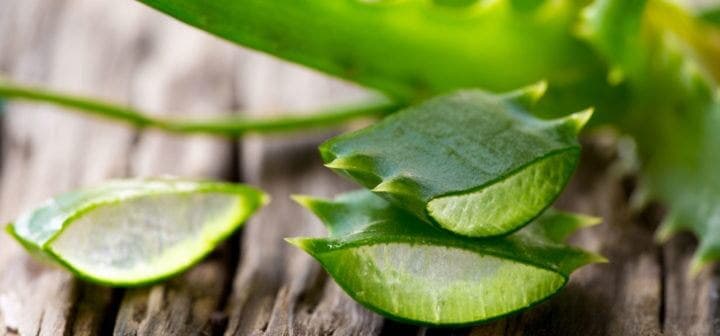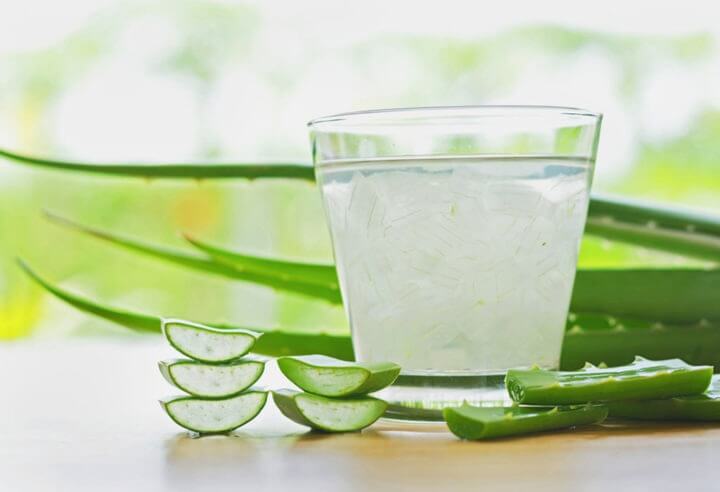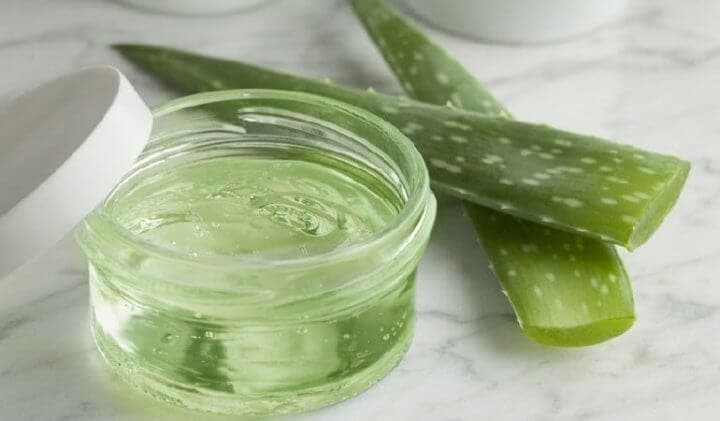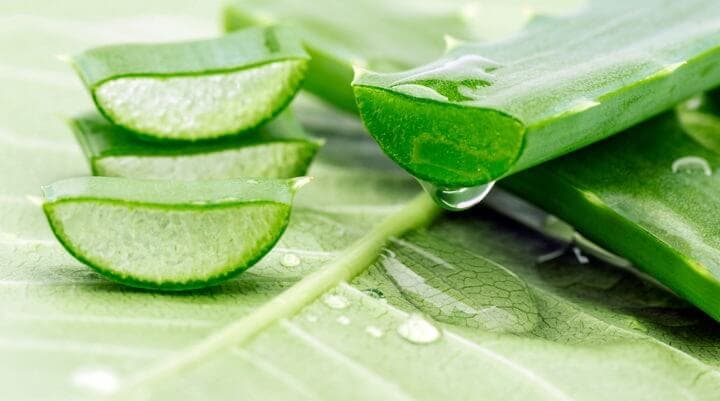Since time immemorial, aloe vera has been considered a miraculous plant to treat diseases, pathologies or physical problems.
Also known as " aloe ", not only do traditional beliefs believe that it has fantastic healing and medicinal properties, but several studies have also linked it to various health benefits. For example, it is used to treat sunburns, fight dental plaque, and lower blood sugar levels. In addition, it is rich in nutrients with more than 75 potentially active compounds, including vitamins, minerals, enzymes, amino acids, fatty acids and polysaccharides (Surjushe, Vasani and Saple, 2008).
Despite everything, the question arises as to whether you can eat aloe vera . Learn about the surprising reality behind all this and if it is safe to eat such an acclaimed plant.

Can you eat aloe vera?
Yes, aloe vera leaves are generally safe to ingest . These are made up of three parts: the skin, the gel, and the latex. However, it is the gel that is considered miraculous, as it is responsible for most of the health benefits.
Most people apply this gel to their skin, so it is also considered safe to eat when prepared correctly. To do this, you must follow the following steps:
- Cut off the pointed edges at the top of the plant.
- Then cut the skin on the flat side and, in turn, remove the transparent gene.
- Proceed to cut it into cubes. These must be very well washed in order to remove all traces of dirt and residue, such as latex residue, which provides a bitter and unpleasant taste.
- You can soak the cubes in water for 10-20 minutes before eating if you find it too difficult to chew.

What does aloe vera taste like?
Aloe vera gel has a clean, refreshing taste, great for adding to a variety of recipes, including smoothies and sauces in the summer. Alternatively, the skin can also be enjoyed by dipping it in salsa or hummus.
It is very important to choose leaves from the aloe vera plant and not from other aloe species, as they can be poisonous and therefore not suitable for human consumption.

What aloe vera is not suitable to eat?
Aloe vera gels are famous and generally used for pathologies or skin problems, as their characteristic effective effects are clearly significant, as we have mentioned above. However, these gels are not suitable for human consumption.
These gels were made for a single purpose: to care for the skin, help soothe sunburns, reduce inflammation, hydrate, relieve itching, and treat a variety of other skin problems.
Many commercial aloe vera gels contain preservatives to extend their shelf life, as well as other ingredients to improve odor, texture, and color. Therefore, many of these ingredients should not be ingested. In addition, due to the lengthy processes and additional products, certain components of the plant are lost and they are no longer as effective if we consume them.

Benefits of eating Aloe Vera
- May Lower Blood Sugar Levels – In human and animal studies, aloe vera gel helped lower blood sugar levels by increasing insulin sensitivity (Zhang, Liu, Liu, Zhao, and Tian, 2016).
- May suppress inflammatory signals
- Reduces dental plaque: If used as a mouthwash, aloe vera juice can be as effective as a regular mouthwash in reducing the build-up of dental plaque.
- May Boost Memory : In an animal study, consuming aloe vera gel helped improve learning and memory while reducing symptoms of depression (Halder, Mehta, & Mediratta, 2013).
- It is rich in antioxidants: Regular consumption of aloe vera gel can raise the levels of antioxidants in the blood. These help fight damage caused by free radicals, which are compounds linked to many chronic diseases.
- It serves slimming: e l aloe vera juice helps us to purify our body and is an ally in losing weight. Eating this plant helps us to eliminate toxins and to burn fat more easily.
- It helps against constipation and is also very effective for gastrointestinal problems such as constipation.

Potential dangers of eating aloe vera
Aloe vera latex, a yellow substance found inside the leaf, and eating this part of the plant has potential risks.
In small doses, eating latex can help treat constipation by promoting contractions. However, long-term consumption of aloe vera latex has been linked to side effects, such as stomach cramps, kidney problems, irregular heartbeat, and muscle weakness.
An example that should be emphasized is that pregnant women should avoid eating latex at all costs, as it can stimulate uterine contractions, which could cause a miscarriage (Steenkamp and Stewart, 2006).
Apart from latex, consuming aloe vera gel is not recommended for people taking diabetes, heart, or kidney medications, as it can make possible side effects of the medications worse. This also applies in cases of people with digestive disorders, such as inflammatory bowel disease (IBD) or Crohn's disease, they should avoid consuming aloe vera latex, as it can make their conditions worse.

conclusion
Aloe vera is a plant that when consumed can bring good and diverse health benefits, thanks to its miraculous medicinal properties. However, it must be properly prepared. Before ingesting it, strict and meticulous care must be taken with the latex part, as it can be potentially harmful to your well-being, and even more so if you are pregnant or suffer from a specific disease.
References
- Halder, S., Mehta, AK and Mediratta, PK (2013). Aloe vera improves memory and reduces depression in mice. Nutritional Neuroscience .doi: 10.1179 / 1476830512Y.0000000050.
- Steenkamp, V. and Stewart, MJ (2006). Medicinal Applications and Toxicological Activities of Aloe. Products. Pharmaceutical Biology. doi: 10.1080 / 13880200701215307.
- Surjushe, A., Vasani, R. and Saple, DG Aloe vera: a short review. Indian Journal of Dermatology . doi: 10.3390 / nu8070388.
- Zhang, Y., Liu, W., Liu, D. Zhao, T. and Tian, H. (2016). Nutrients . doi: 10.3390 / nu8070388.
